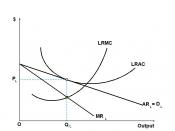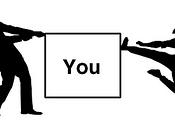� PAGE \* MERGEFORMAT �16�
�
Abstract: Market competition is the foundation of economics in western societies. However, the level of competitiveness varies in healthcare markets around the World. Many countries in the World, including the United States, have moved to infuse more market competition and less government involvement into their national healthcare systems. Evidence is provided in this paper to suggest that a public healthcare policy based solely on traditional market competition may be detrimental to the social welfare of citizens in the United States.
Introduction
Over the past few decades competition in the United States (US) healthcare market has increased, with a trend toward less government involvement. This paper will provide a background of the traditional models of competition, describe critical assumptions of competitive markets, and describe conclusion of these assumptions to healthcare policy in the US. This paper posits that economic theory does not provide strong justification for the superiority of competitive market policies in the health care area.
This is because the competitive model is based on certain important assumptions that, we argue, do not appear to be met.
1. The traditional economic model
1.1 Consumer
In the consumer theory, people tend to maximize their utility, which can be determined by the bundle of goods and services that they possess and acquire. These services and goods are bought according to consumer's desires, tastes and prices of alternative goods, all relative to how much income a consumer can afford to spend. This utility is obtained by a consumer through the consumption of alternative quantities of different goods and services.
As a person consumes more units of the same product or service they must obey the diminishing marginal utility principal. The principal states that a consumer will consume additional units of a product or service, up to...


